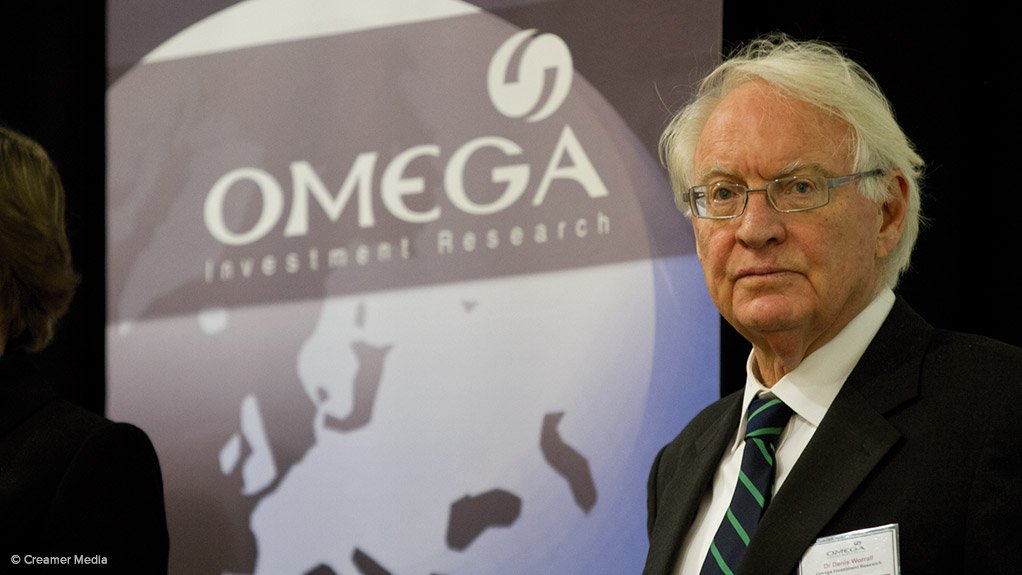Given the massive media commentary on Finance Minister Pravin Gordhan's budget speech yesterday, and the fact that there are enough financial experts around, we will go with Iraj Abedian’s - an economist we greatly respect - comment to us. "That this is the best balancing act the Minister could do given political and financial constraints". All other considerations aside, what pleases us at Omega about the budget is that it puts the National Development Plan at the centre of social and economic policy. And given our interest in promoting business into Africa, we are encouraged by Minister Gordhan’s support for South African companies trading and investing into the continent. We are less sure about his ability to maintain a firm grip on government spending - given that an earlier commitment was simply brushed aside by his ministerial colleagues and senior public servants.
Obviously, in modern society - and South Africa is a modern society - everything is interrelated. Leadership and vision, job creation and education, the cost of government and the sources and levels of taxation, investment appetite and foreign perceptions, corporate investment rewards and trade union attitudes, and government attitudes towards business - whether enabling or tending to be restrictive – these clearly are all relevant and interrelated. While election manifestoes and statement of policy are an essential part of the democratic process, and make interesting reading, what generates voter interest are the slogans and catch phrases of the campaign. We know this from experience. In the 1987 election, when as an independent I contested the Helderberg Constituency against Chris Heunis, who was leader of the National Party in the Cape, we had a manifesto. But what we thumped across from public meeting to house meeting and back were just four points. One, we are sending a message to the National Party that white South Africans are ready for major change. Two, that we stand for full democracy. Three, the Independent Party is non-racial. And four, that we are free-market oriented. That was it. And Keith Gurney our main strategist didn’t mince words when any of our speakers strayed beyond the four. We didn’t win but we reduced Chris Heunis’ majority from over 8000 to 39 votes.
There are lessons in this for all political parties but in particular for the Democratic Alliance.
The central issue of this election, and the critical problem facing South Africa is the economy ANC’s leadership of the economy. What brings this home very powerfully is something Alistair Sparks wrote earlier this week. We refer to him at length because it’s unlikely our international leaders would have seen his column in The Cape Times.
Sparks dramatically illustrates just how far the South African economy has deteriorated under the ANC and specifically President Zuma’s rule in comparison with Chile and other Latin American countries. 1990 was a year of historic significance for both – South Africa and Chile. Nelson Mandela was released and Augusto Pinochet, the murderous dictator of Chile was ousted.
In the years immediately following their liberation, the two countries recovered with their economies, both based primarily on mining and agriculture, growing almost in parallel at an average of 4.5% a year - until 2009 in the year President Zuma came to power. At that point the two began to deviate, while Chile continued its healthy growth rate South Africa floundered. In the five years since then - the full Zuma term - the two have parted quite strikingly. In 2011 Chile hit a peak of 9.8% GDP growth, while South Africa fell to 3.9%. The following year Chile grew another 5.6% to our 2.1%, and last year Chile's growth was 4.7% while South Africa slumped to 0.7%".
Alistair asks why the difference? First, because of constant labour unrest which caused us to miss out on two resource booms. Second, because Chile is ranked 1st in Latin America and 7th in the world on the Index of Economic Freedom, while we are ranked 75th.
The World Bank rates Chile amongst the most competitive countries in the world and one of the easiest with which to do business. While South Africa chokes its competitiveness with red tape and the Zuma administration seems positively hostile towards foreign investment.
Chile’s healthy growth rate has reduced its unemployment rate from 8% to 5% over the past 5 years, while South Africa’s has continued to balloon to an actual 30% to 35%.
This is devastating stuff and not even the most committed ANC cadre can believe that the ANC has the answers – given its record.
Written by Dr Denis Worrall
Editorial Note:
In our first Insight of the year, we said that 2014 is an important year for Africa. First of all, because it would show whether Africa could maintain the impressive levels of growth of the past 18 months; and secondly because of key elections in South Africa and other countries. As far as South Africa is concerned, the election would obviously have a bearing on investor perceptions of the country which, as the recent Mining Indaba demonstrated, are on the negative side.
Our last Insight (13 February which is available on our website www.omegainvest.co.za) set up as a backdrop to the election of 7 May the results of the previous general election of 2009. In what follows, Dr Worrall focuses on what he describes as a pleasing aspect of the election, namely the heavy concentration on party manifestoes. But this election he believes, is about the economy.
Stacey Farao, Managing Editor
EMAIL THIS ARTICLE SAVE THIS ARTICLE
To subscribe email subscriptions@creamermedia.co.za or click here
To advertise email advertising@creamermedia.co.za or click here











